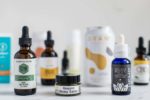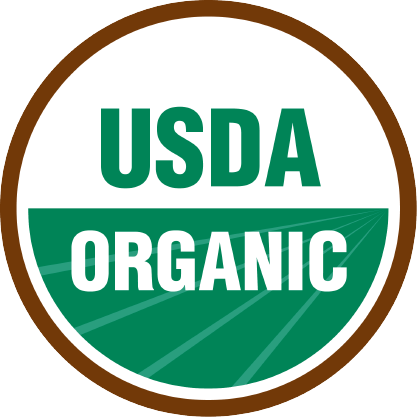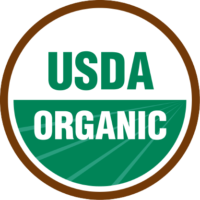Consumer demand for products containing cannabidiol (CBD) is on the rise across the country, with industry experts estimating that the market for CBD products will reach $20 billion by 2024. This boom in consumer demand has outpaced the regulatory framework surrounding these products. While the 2018 Farm Bill decriminalized hemp, it left much up to individual states and preserved the FDA’s jurisdiction over dietary supplements, foods and cosmetics. The FDA has not yet issued any specific rulemaking for CBD products.

Against this background, it is not surprising that consumer class actions regarding hemp-derived CBD products are flourishing. Over the past year alone, the plaintiffs’ bar has filed approximately twenty putative class action lawsuits against manufacturers of hemp-derived CBD products. The cases are primarily in federal court in California and Florida, with additional cases in Illinois and Massachusetts. Plaintiffs challenge the marketing and advertising of a variety of CBD products, including oils, gummies, capsules, creams, pet products and more.
The cases so far follow a familiar pattern seen in prior consumer class actions, especially in the food and beverage industry. Read on to learn what plaintiffs have claimed in the CBD lawsuits, how companies are defending their products, and how best to position your hemp-derived CBD products in light of lessons learned from past litigation.
What These Lawsuits Are Claiming, and How Companies Are Defending Their Products
In most of the recent CBD lawsuits, plaintiffs claim either that: 1) product labels over- or understate the amount of CBD in the products; and/or 2) the sale of CBD products is inherently misleading to consumers because the products are purportedly illegal under federal law. Regardless of which theory underlies the claims, plaintiffs typically frame their claims as consumer fraud, false advertising, breach of warranty, unjust enrichment, and/or deceptive trade practices.

In most cases, defendants have filed motions to dismiss seeking to have the cases thrown out. In these motions, defendants argue that plaintiffs’ claims are “preempted” by the Federal Food Drug and Cosmetic Act (FDCA), and that only the federal government can enforce the FDCA. Some defendants have additionally argued that if the court is not prepared to dismiss the claims as preempted, the doctrine of “primary jurisdiction” applies. This means that the issues raised regarding CBD are for the FDA to decide, and the cases should be stayed until the FDA finalizes and issues rules on products containing hemp-derived CBD. Many defendants have also advanced dismissal arguments for lack of standing, claiming that the individuals bringing the lawsuits are trying to sue for conduct that never harmed them personally (e.g., because they never purchased a particular product), or will not harm them in the future (e.g., because plaintiffs have stated they will not buy the product again). The standing arguments often apply to particular claims or products within the lawsuit, rather than to the lawsuit as a whole.
Current Status of the Cases
Of the approximately twenty consumer class actions filed over the last year, about half remain pending:
- Five have been stayed pursuant to motions filed by defendants;
- Two have motions to dismiss pending;
- One has a pending motion to vacate a default judgment against defendants;
- One was filed earlier this month, and defendant’s deadline to respond has not yet elapsed.
 To date, none of the cases (currently pending or otherwise) has proceeded to discovery, and no class has yet been certified. That means that no court has yet determined that these cases are appropriate to bring as class action lawsuits, rather than as separate claims on behalf of each individual member of the putative class. This is significant, because plaintiffs’ ability to achieve class certification will likely influence whether these CBD lawsuits will continue to be filed. Consumer fraud cases like these typically do not claim any physical injury, and the monetary damages per individual plaintiff are relatively low. As such, the cases often are not worth pursuing if they cannot proceed as class actions.
To date, none of the cases (currently pending or otherwise) has proceeded to discovery, and no class has yet been certified. That means that no court has yet determined that these cases are appropriate to bring as class action lawsuits, rather than as separate claims on behalf of each individual member of the putative class. This is significant, because plaintiffs’ ability to achieve class certification will likely influence whether these CBD lawsuits will continue to be filed. Consumer fraud cases like these typically do not claim any physical injury, and the monetary damages per individual plaintiff are relatively low. As such, the cases often are not worth pursuing if they cannot proceed as class actions.
Of the cases that are no longer pending, all but two were voluntarily dismissed by plaintiffs. While the motivation behind these dismissals is not always announced, approximately half of the voluntary dismissals came after defendants filed a motion to dismiss, but before the court had ruled on it. One Florida case was mediated and settled after the court denied defendant’s motion to dismiss.1 A California court spontaneously dismissed one matter (without the defendant having filed any motion) due to a procedural defect in the complaint, which plaintiffs failed to correct by the court-imposed deadline.2
Early Outcomes on Motions to Dismiss
Of the thirteen motions to dismiss filed to date, only five have been decided. So far:
- No court has dismissed a case based on federal preemption grounds. Courts have either deferred ruling on preemption, or denied it without prejudice to re-raising it at a later time.
- Four courts have stayed cases based on primary jurisdiction.3
- Only one court has denied the primary jurisdiction argument.4
- Standing arguments have been successful in three cases,5 and deferred or denied without prejudice to later re-raising in the other two cases.6 However, the standing arguments applied only to certain products/claims, and were not dispositive of all claims in any case.
These rulings show a clear trend towards staying the cases pursuant to primary jurisdiction. In granting these stays, courts have noted that regulatory oversight of CBD ingestible products, including labeling, is currently the subject of FDA rulemaking, and that FDA is “under considerable pressure from Congress” to expedite the publication of regulations and guidance.7

Plaintiffs may be recognizing the trend towards primary jurisdiction as well, since there is now at least one case where plaintiffs agreed to a stay after defendant filed a motion to dismiss asserting, among other things, primary jurisdiction.8 But some plaintiffs are still resisting. For example, in the first case to have been stayed plaintiffs have since filed a motion to lift the stay. The motion—which was filed after the case was reassigned to a different judge—argues that primary jurisdiction does not apply, and that the FDA’s recent report to Congress suggests no CBD-specific rulemaking is forthcoming.9 The motion is pending.
Lessons Learned From Food Industry Consumer Class Actions
The motions to dismiss that have been filed to date in CBD-related class actions follow a tried and true playbook that has been developed by defense counsel in other food and beverage industry class actions. For example, the primary jurisdiction arguments that have been gaining traction in the CBD consumer class actions are very similar to primary jurisdiction arguments that were successful years earlier in cases involving the term “natural” and other food labeling matters.10
Similarly, the standing arguments that have succeeded in the early motions to dismiss CBD consumer class actions followed similar standing arguments made years earlier in food and beverage class actions.11

The preemption arguments that have largely been deferred in CBD consumer class actions to date could become a powerful argument if and when the FDA completes its CBD rulemaking. The preemption defense has been particularly effective when the preemption arguments focus on state law claims that require defendants to omit or add language to their federally approved or mandated product labeling, or where plaintiffs otherwise seek to require something different from what federal standards mandate.12 These arguments could be particularly compelling once the FDA issues its long-anticipated rulemaking with respect to CBD products.
Until then, primary jurisdiction will likely continue to gain traction. The FDA’s comprehensive regulatory scheme over food, dietary supplement, drug, and cosmetic products, combined with the FDA’s frequently-expressed intention to issue rulemaking with respect to CBD-products, and a need for national uniformity in how such rulemaking will interface with state requirements, converge to make primary jurisdiction especially appropriate for CBD-related class actions.13
How to Best Position Your Products
Until the FDA issues its long-awaited rulemaking regarding CBD products, companies can take the following steps to best position their products to avoid litigation and/or succeed in the event litigation arises:
- Work with reputable labs to ensure the amount of CBD stated on product labeling and advertising is accurate;
- Ensure that the product is manufactured according to appropriate current Good Manufacturing Processes (cGMPs);
- Ensure that any claims made on product labeling and/or in advertising are consistent with FDCA requirements and applicable FDA guidance to date – for example, if the product is a dietary supplement, avoid making express or implied claims that it can cure or prevent disease;
- Maintain a file with appropriate substantiation to support any claims stated in product labeling and advertising;
- Work with legal counsel to stay abreast of developments in federal and state laws applicable to hemp-derived CBD products, and how any changes might impact potential class action defenses; and
- If a lawsuit arises, work with legal counsel to develop a strategy that not only resolves the current litigation as efficiently as possible, but also positions the company strategically for any future consumer claims that may arise.
References
- Final Mediation Report, Potter v. Potnetwork Holdings, Inc., 1:19-cv-24017-RNS, (S.D. Fla. July 30, 2020).
- Court Order, Davis v. Redwood Wellness, LLC, 2:20-cv-03273-PA-JEM (C.D. Cal. Apr. 10, 2020).
- Electronic Order, Ahumada v. Global Widget LLC, 1:19-cv-12005-ADB (D. Mass. Aug, 11, 2020); Memorandum and Order, Glass v. Global Widget, LLC, 2:19-cv-01906-MCE-KJN (E.D. Cal. June 15, 2020); Order Granting in Part Defendant’s Motion to Dismiss and Staying Remaining Causes of Action, Colette et al. v. CV Sciences Inc., 2:19-cv-10227-VAP-JEM (C.D. Cal. May 22, 2020); Order on Motion to Dismiss, Snyder v. Green Roads of Florida LLC, 0:19-cv-62342-AHS (S.D. Fla. Jan. 3, 2020).
- Order on Motion to Dismiss, Potter v. Potnetwork Holdings, Inc., 1:19-cv-24017-RNS, (S.D. Fla. Mar. 30, 2020).
- Order Granting in Part Defendant’s Motion to Dismiss and Staying Remaining Causes of Action, Colette et al. v. CV Sciences Inc., 2:19-cv-10227-VAP-JEM (C.D. Cal. May 22, 2020); Order on Motion to Dismiss, Potter v. Potnetwork Holdings, Inc., 1:19-cv-24017-RNS, (S.D. Fla. Mar. 30, 2020); Order on Motion to Dismiss, Snyder v. Green Roads of Florida LLC, 0:19-cv-62342-AHS (S.D. Fla. Jan. 3, 2020).
- Electronic Order, Ahumada v. Global Widget LLC, 1:19-cv-12005-ADB (D. Mass. Aug, 11, 2020); Memorandum and Order, Glass v. Global Widget, LLC, 2:19-cv-01906-MCE-KJN (E.D. Cal. June 15, 2020).
- Order on Motion to Dismiss at 12, Snyder v. Green Roads of Florida LLC, 0:19-cv-62342-AHS (S.D. Fla. Jan. 3, 2020).
- Minute Entry, Pfister v. Charlotte’s Web Holdings, Inc., 1:20-cv-00418 (N.D. Ill. Aug. 11, 2020).
- Plaintiff’s Motion to Lift Stay, Snyder v. Green Roads of Florida LLC, 0:19-cv-62342-AHS (S.D. Fla. July 13, 2020).
- See, e.g., Astiana v. Hain Celestial Grp., Inc., 905 F. Supp. 2d 1013 (N.D. Cal. 2012), rev’d on other grounds, 783 F.3d 753 (9th Cir. 2015); Taradejna v. Gen. Mills, Inc., 909 F. Supp. 2d 1128 (D. Minn. 2012).
- See Miller v. Ghirardelli, 912 F. Supp. 2d 861, 869 (N.D. Cal. 2012) (holding that the named plaintiff lacked standing where the products purchased by the putative class members were not “substantially similar” enough to those purchased by the named plaintiff); Colucci v. ZonePerfect Nutrition Co., No. 12-2907-SC, 2012 WL 6737800 (N.D. Cal. Dec. 28, 2012) (finding one of two named plaintiffs lacked standing because, even though the other named plaintiff (his fiancée) purchased the nutrition bars for him, he himself did not purchase any of the bars); Veal v. Citrus World, Inc., No. 2:12-CV-801-IPJ, 2013 WL 120761 (N.D. Ala. Jan. 8, 2013); Robinson v. Hornell Brewing Co., No. 11-2183 (JBS-JS), 2012 WL 6213777 (D.N.J. Dec. 13, 2012) (holding that there was no Article III standing because the named plaintiff had testified and stated in written discovery that he would not purchase the product in the future).
- See, e.g., Turek v. Gen. Mills, Inc., 662 F.3d 423 (7th Cir. 2011); Lam v. Gen. Mills, Inc., 859 F. Supp. 2d 1097 (N.D. Cal. 2012); Veal v. Citrus World, Inc., No. 2:12-CV-801-IPJ, 2013 WL 120761, at *9-10 (N.D. Ala. Jan. 8, 2013).
- See, e.g., Astiana v. Hain Celestial Grp., Inc., 905 F. Supp. 2d 1013 (N.D. Cal. 2012), rev’d on other grounds, 783 F.3d 753 (9th Cir. 2015); Taradejna v. Gen. Mills, Inc., 909 F. Supp. 2d 1128 (D. Minn. 2012).





















